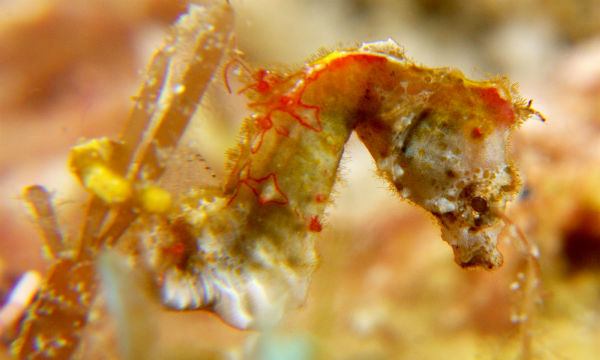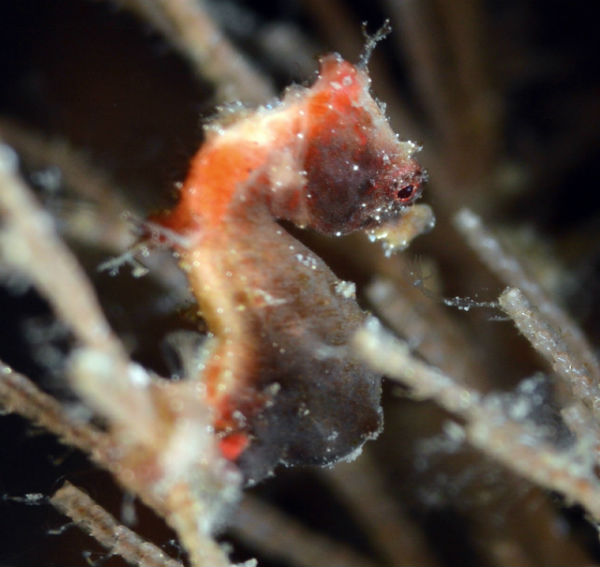MANILA, Philippines—Divers have captured on camera two rare species of seahorse in the Philippines that had previously never been seen before in the country’s seas.
The photographs of a weedy pygmy seahorse (Hippocampus pontohi) and Severn’s pygmy seahorse (Hippocampus severnsi) were submitted to the iSeahorse website (www.iseahorse.org), which gathers sightings from the public, and have been verified by the Zoological Society of London’s (ZSL) Project Seahorse as the first records of these species in the Philippines.
The new observations mean that there are now a total of 11 species of seahorse known to inhabit Philippine waters. Conservationists hope that news of this discovery will encourage other members of the public to keep their eyes for these chameleon-like fish when they are out snorkeling or diving in coastal waters.
The seahorses were spotted near to the island of Romblon, which is one of the provinces that surround the Verde Island Passage. There is not currently enough data to assess the conservation status of these two species, but it is hoped this new expansion of their range will help conservationists piece together the missing information.
iSeahorse Philippines coordinator for Project Seahorse, Chai Apale says, “The exciting discovery of these seahorses in new waters demonstrates the important role citizen scientists can play in conservation.
“Seahorses are found all over the country, but we need the support and participation of the ci
Citizen scientists to help us map out the exact locations of these threatened fishes. We’re encouraging the public to put on their snorkelling gears and use the iSeahorse website and app to record their seahorse sightings.”
The weedy pygmy seahorse was previously only known to inhabit Indonesian waters. It is one of the smallest seahorses growing to maximum height of 1.4cm but astonishingly it is bigger than the Severn’s pygmy seahorse, which grows to just 1.3cm – smaller than a Peso coin.
Their miniature stature means that they are less likely to become by-catch in shrimp fisheries than other species of seahorse, a major threat to seahorse populations globally. However, overfishing and shoreline development pose an increasing threat to the coral reefs that they inhabit.
Research assistant at Project Seahorse, Riley Pollom says: “Millions of seahorses are caught and traded dead and alive all over the world. They are mysterious creatures and poorly understood, but through iSeahorse we hope to harness the collective knowledge of citizen scientists to learn more about them and develop appropriate conservation protections.
“To date, more than 500 sightings have been submitted from all over the world and they will contribute towards ensuring seahorses remain a permanent feature of our coastal waters.” (advt)



